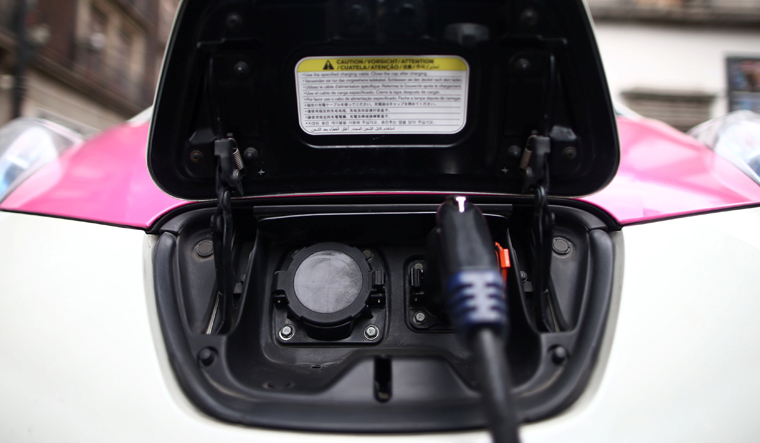There has been a flurry of tweets and opinions in the recent times on the electric vehicles (EV) segment in India.
Tesla founder Elon Musk batted for lowering of import duties on Electric Vehicles in India, which was followed by Hyundai India MD and CEO S.S. Kim expressing his desire to have lower import duties for completely built units in India. However, Ola's Bhavish Aggarwal tweeted that he strongly disagrees with both Musk and Kim. “Let’s have confidence in our ability to build indigenously and also attract global OEMs to build in India, not just import. We won’t be the first country to do so!” Agarwal had tweeted.
Some of the domestic players in the EV ecosystem with whom THE WEEK spoke had mixed reactions. Some felt that the import duty could be lowered temporarily in order to bring in more action in the ecosystem as it will enable competition. A few also expressed confidence in the capabilities of Indian OEMs (original equipment manufacturers).
“India has been a global leader in automotive manufacturing and has been exporting to many countries for decades. However, EVs are more electronics than automobiles and our manufacturing capabilities and infrastructure in electronics are still a bit nascent. Among other things, what is crucial for India to be a leading EV manufacturer is volume. Allowing time bound relaxation for import of EVs and major components will only help the local EV manufacturer get larger volumes by expanding the market,” pointed out Vikas Jain, the CEO of Welectric, an electric two wheeler lifecycle management company that is focusing on removing the impediments (maintenance, financing and aftermarket) to accelerate the adoption of electric two-wheelers in India.
Jain observed that apart from political and economic considerations, the government should also look at what the customers want. “Do the users and customers need better and more EVs? The answer is 'yes'. Allowing temporary relaxation in import duty of vehicles and critical components will only help expand the EV sale volumes, which is crucial for EV manufacturing to scale domestically. There is no doubt that stringent localisation requirements over the last couple of years has made it difficult for local EV OEMs to scale up their offerings and volumes,” added Jain.
According to Jain, the smartphone penetration and domestic manufacturing success story would not have played out as well as it did if we persistently had high import duties from day one. “It is day one for electric mobility in India and we should support the domestic and global OEMs to be able to manufacture in India by enabling attractive volumes for their products domestically. Subsequently, it will also be a large export opportunity for India,” he remarked.
Many experts in the EV ecosystem believe that relaxing import duties on EV models can be a very positive sign for the overall ecosystem. “In the short to medium run, relaxing import duties will allow globally competitive EV models to enter India, inspire confidence among customers and accelerate the adoption of EVs in India. This is important, as it will push Indian OEMs to innovate and adopt clean transportation sooner. The fear I have is that Indian OEMs will miss the bus on being globally competitive in the EV space. India has already lost the race on electronics, solar manufacturing etc. and we should not let this happen for EVs,” said Nikhil Nair, founder and CEO of Ohm Mobility, a Bengaluru-based FinTech Mobility company
A few experts also feel that they had confidence in the Make in India initiative and Indian OEMs had the capability to make India self-reliant in Electric Vehicles as well. “I have full confidence that India is at a juncture where we can have an "Atmanirbhar" future of electric vehicles. With the right policy support and infrastructure, Indian OEMs can pave the way forward for Indian e-mobility. There are a lot of opportunities for Indian OEMs to explore, especially with the rise of MaaS (Mobility-as-a-service) and we should capitalise on it by attracting investments, talent and the right policy,” said Amit Gupta, the founder and CEO of Yulu, one of the largest technology driven mobility platform in the country.





